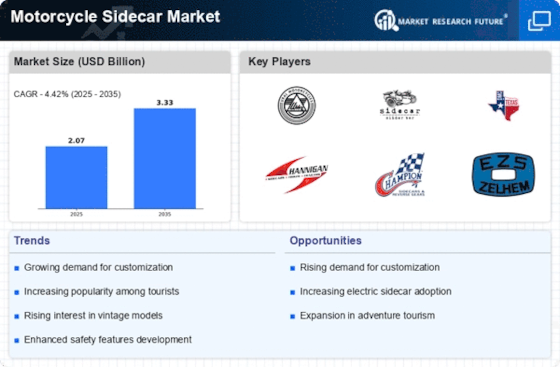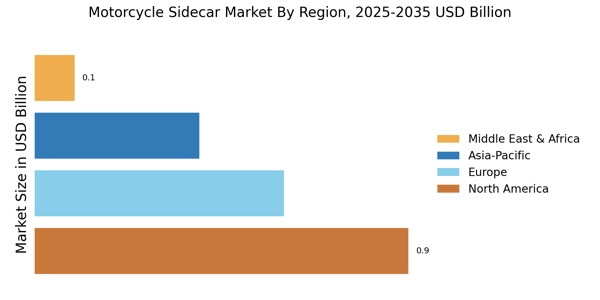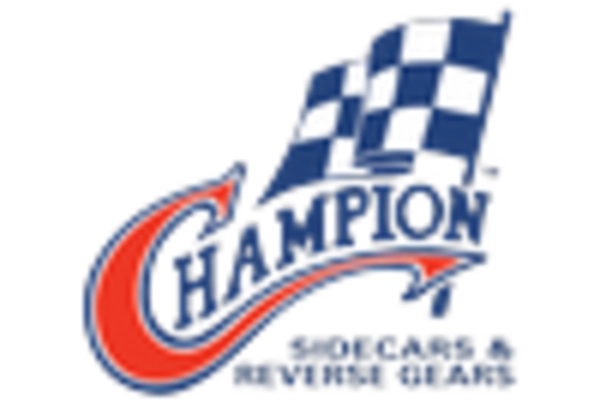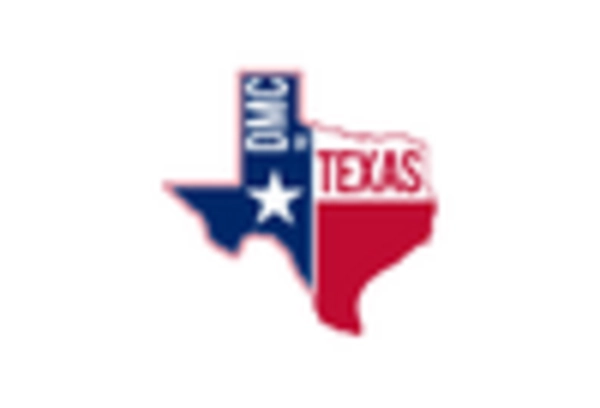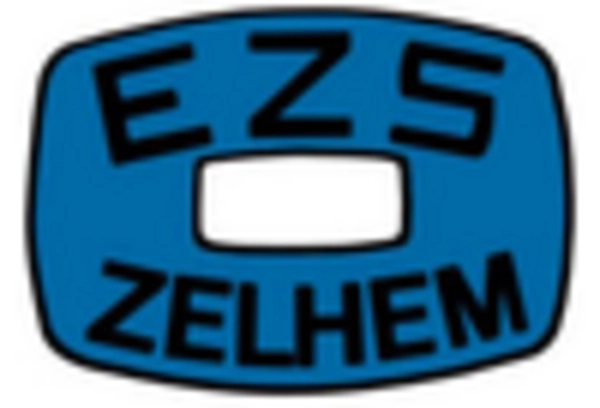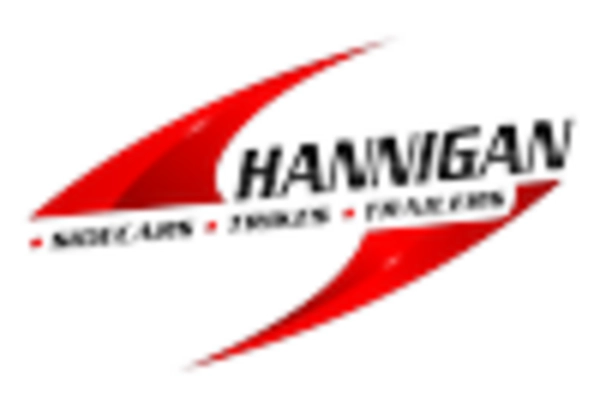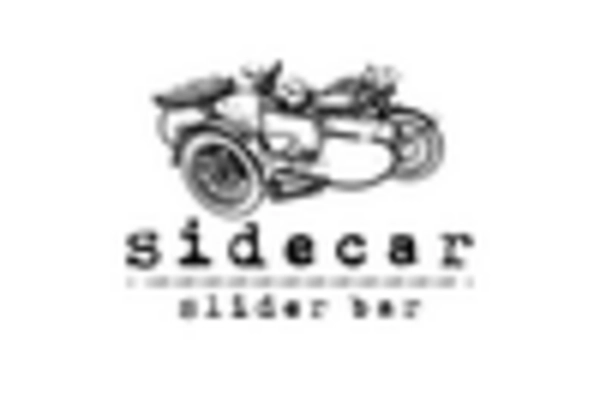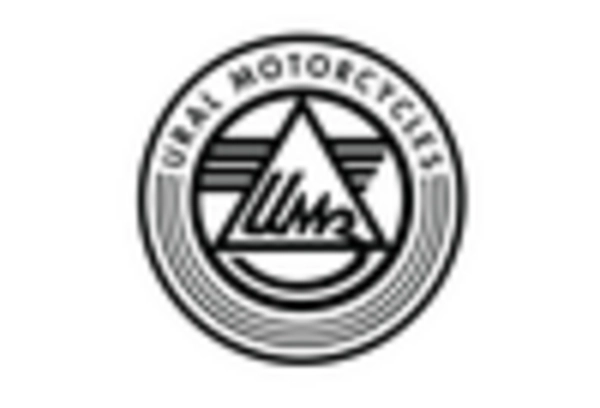Expansion of Motorcycle Rental Services
The expansion of motorcycle rental services is emerging as a significant driver for the Motorcycle Sidecar Market. As urban mobility solutions evolve, rental companies are increasingly offering motorcycles with sidecars to cater to tourists and adventure seekers. This trend is particularly evident in popular travel destinations where unique experiences are in high demand. The convenience of renting a motorcycle with a sidecar allows individuals to explore new areas while enjoying the benefits of additional passenger capacity. In 2025, the motorcycle rental market is projected to grow, indicating a favorable environment for sidecar rentals. This expansion not only enhances the visibility of sidecars but also encourages potential buyers to consider them as viable options for personal use.
Increasing Demand for Recreational Vehicles
The Motorcycle Sidecar Market experiences a notable surge in demand for recreational vehicles. As consumers seek alternative modes of transportation that offer both adventure and practicality, sidecars present an appealing option. The rise in leisure activities, coupled with a growing interest in motorcycle tourism, contributes to this trend. In 2025, the motorcycle market is projected to grow at a compound annual growth rate of approximately 5.5%, indicating a robust interest in two-wheeled vehicles. Sidecars enhance the motorcycle experience by providing additional seating and storage, making them attractive for families and groups. This increasing demand for recreational vehicles is likely to drive innovation and expansion within the Motorcycle Sidecar Market.
Technological Advancements in Design and Safety
Technological advancements play a crucial role in shaping the Motorcycle Sidecar Market. Innovations in design and safety features are becoming increasingly important to consumers. Enhanced materials and engineering techniques have led to lighter, more durable sidecars that improve performance and safety. For instance, the integration of anti-lock braking systems and advanced suspension technologies has made sidecars safer and more appealing to a broader audience. As manufacturers invest in research and development, the market is likely to witness the introduction of cutting-edge designs that cater to the evolving preferences of riders. This focus on technology not only enhances user experience but also positions the Motorcycle Sidecar Market for sustained growth.
Growing Awareness of Motorcycle Safety Regulations
Growing awareness of motorcycle safety regulations is influencing the Motorcycle Sidecar Market. As governments and organizations emphasize the importance of safety in motorcycling, consumers are becoming more informed about the benefits of sidecars. Sidecars provide added stability and safety, making them an attractive option for riders concerned about safety. In recent years, various regions have implemented stricter safety regulations, which may encourage riders to opt for sidecars as a safer alternative to traditional motorcycles. This shift in consumer behavior is likely to drive demand for sidecars, as they align with the increasing focus on safety in the motorcycle industry. The Motorcycle Sidecar Market is poised to capitalize on this trend as safety becomes a paramount consideration for riders.
Rising Interest in Vintage and Classic Motorcycles
The Motorcycle Sidecar Market is significantly influenced by the rising interest in vintage and classic motorcycles. Enthusiasts are increasingly drawn to the nostalgia and unique aesthetics of older models, which often pair well with sidecars. This trend has led to a resurgence in the restoration and customization of classic motorcycles, creating a niche market for sidecars designed to complement these vehicles. In 2025, it is estimated that the vintage motorcycle segment will account for a substantial share of the overall motorcycle market, further driving demand for sidecars. As collectors and hobbyists seek to enhance their riding experience, the Motorcycle Sidecar Market stands to benefit from this growing passion for classic motorcycles.


